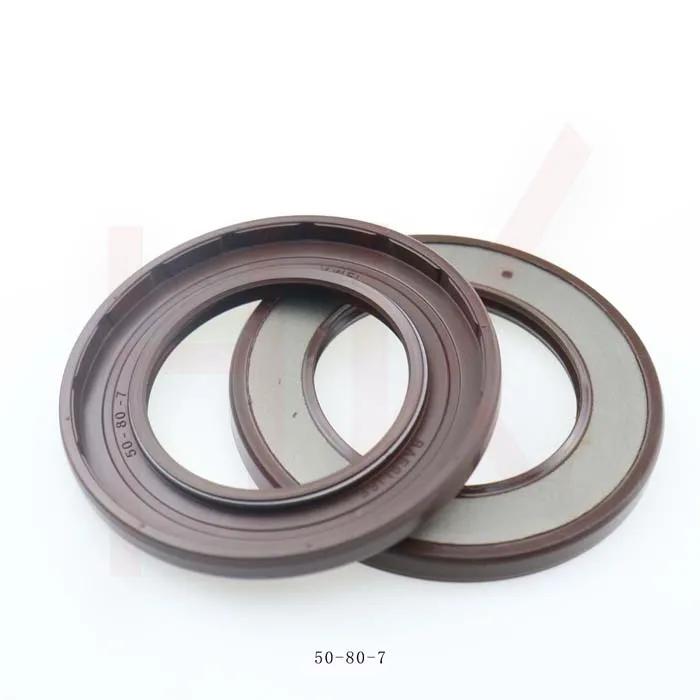Nov . 16, 2024 22:23 Back to list
high temp oil seal
High Temperature Oil Seals A Critical Component in Engineering
When it comes to machinery and mechanical systems, the importance of sealing solutions cannot be overstated. Among the various types of seals, high-temperature oil seals play a critical role in ensuring the efficiency and longevity of engine components and other machinery exposed to extreme conditions. This article explores the significance, applications, and considerations surrounding high-temperature oil seals.
Understanding High-Temperature Oil Seals
High-temperature oil seals are designed to prevent the leakage of lubricants and protect components from external contaminants at elevated temperatures. They are commonly made from materials such as fluoroelastomers (FKM), which can withstand extreme heat and chemical exposure. These seals are essential in applications where the operational environment exceeds the limits of ordinary rubber seals, which can break down, harden, or degrade, leading to failure and significant operational costs.
Applications Across Industries
High-temperature oil seals find extensive use in various industries, including automotive, aerospace, manufacturing, and energy. In the automotive sector, for instance, they are crucial in engines, transmissions, and power steering systems, where high temperatures generated by combustion processes demand robust sealing solutions. Similarly, in aerospace applications, high-temperature seals are vital for ensuring the integrity of engines and fuel systems, where they protect against both oil leakage and the ingress of harmful contaminants.
In manufacturing and energy production, high-temperature oil seals are also used in pumps, valves, and compressors. These applications require seals that can operate effectively under varying pressures and thermal conditions. A failure in these systems can lead to costly downtimes and maintenance, which underscores the importance of selecting the right seal for the specific application.
Key Features and Advantages
The primary purpose of high-temperature oil seals is to provide reliable sealing under extreme conditions. Some of the key features that distinguish them from standard seals include
1. Temperature Resistance High-temperature oil seals can typically withstand temperatures up to 200°C (392°F) or even higher, depending on the material used. This makes them suitable for heavy-duty applications.
2. Chemical Resistance These seals are designed to resist various oils and fluids, ensuring that they do not break down or lose their sealing capabilities when exposed to harsh chemicals.
high temp oil seal

3. Durability High-quality materials and robust design contribute to the longevity of these seals, reducing the frequency of replacements and associated maintenance costs.
4. Customization Manufacturers often provide options for customized seals that cater to the specific requirements of an application, including size, shape, and material composition.
Considerations for Selection
Selecting the right high-temperature oil seal involves several critical considerations
1. Operating Conditions It's essential to consider the temperature and pressure conditions the seal will be exposed to. Understanding the specific environment is crucial for choosing a seal with the appropriate material composition.
2. Compatibility with Fluids The type of oil or lubricant used in the machinery must be compatible with the sealing material to prevent degradation.
3. Mechanical Design The design of the system should allow for the proper installation of the seal, ensuring a secure fit and minimizing the risk of leakage.
4. Regulatory Standards In many industries, compliance with regulatory standards is essential. It's important to ensure that the chosen seals meet industry-specific requirements.
Conclusion
High-temperature oil seals are a vital component in the reliability and efficiency of various mechanical systems. Their ability to withstand extreme temperatures and pressures, coupled with their durability and chemical resistance, makes them indispensable in many applications. As technology advances, the materials and designs of these seals continue to evolve, offering even better performance and reliability. By understanding their significance and carefully selecting appropriate seals for specific applications, engineers and manufacturers can greatly enhance the operational performance of their equipment, ensuring longevity and reducing maintenance costs. In an ever-evolving industrial landscape, the role of high-temperature oil seals will only grow in importance.
-
TCN Oil Seal Metal Ring Reinforcement for Heavy Machinery
NewsJul.25,2025
-
Rotary Lip Seal Spring-Loaded Design for High-Speed Applications
NewsJul.25,2025
-
Hydraulic Cylinder Seals Polyurethane Material for High-Impact Jobs
NewsJul.25,2025
-
High Pressure Oil Seal Polyurethane Coating Wear Resistance
NewsJul.25,2025
-
Dust Proof Seal Double Lip Design for Construction Equipment
NewsJul.25,2025
-
Hub Seal Polyurethane Wear Resistance in Agricultural Vehicles
NewsJul.25,2025
-
The Trans-formative Journey of Wheel Hub Oil Seals
NewsJun.06,2025
Products categories
















